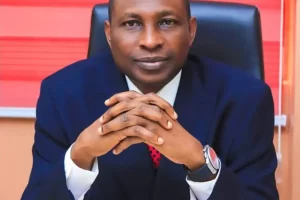From lack of due process in procurement to daily oil theft, and complex scams involving government officials and private sector players. Nigeria’s oil and gas sector is notorious for its embroideries of corruption scandals and irregularities.
There is hardly a year that a corruption case would not emerge from any of the federal government agencies or private companies in the oil sector. While a large number of these cases are never resolved; others linger forever in legal fisticuffs.
Experts say Nigeria loses some 400,000 barrels of crude everyday which is worth $40 million to oil theft. Despite public uproars, lamentations from politicians, and countless ad hoc committees set up by both legislative and executive arms, the problem persists.
Ripples Nigeria presents some of the high corruption scandals that have made it to the public glare in the country’s oil sector, and have been subject to probes by the government, yet remain unresolved.
1. Malabu Oil Scandal
The Malabu oil scandal has been on for over 20 years. It involved an alleged fraudulent transfer of the highly lucrative Oil Prospecting Lease (OPL) 245 to Malabu in 1998 under General Sani Abacha and its subsequent transfer to Agip and Shell companies, under President Olusegun Obasanjo.
The OPL 245, an offshore oilfield 150km off the Niger Delta waters was allocated to Malabu Oil and Gas Ltd in 1998. The deal was said to have been engineered by then Oil minister, Dan Etete, who reportedly had ownership interests in Malabu oil. The indigenous company later brought in Shell company as a technical partner, and that was when it began to get messy.
The Obasanjo government revoked the OPL 245 from Malabu and assigned it to Shell. This led to legal disputes involving the oil companies and the federal government which lingered into Goodluck Jonathan’s administration. A settlement was eventually reached among the parties involved, but the deal was said to be fraudulent. While the Economic and Financial Crimes Commission dragged some senior officials in the Jonathan government to court, Shell and its officials were prosecuted in Italy for their roles in the scandal. Although they were acquitted, Italian prosecutors vowed to go on appeal.
Prosecutors and investigators handling the case within and outside Nigeria agree that the settlement deal which involved $1.2 billion was fraught with bribes collected by officials of Shell, Malabu and the federal government.
The EFCC arrested Jonathan’s Minister of Justice, Mohammed Adoke, and accused him of diverting the sum of $800 million paid into the federal government’s escrow account at JP Morgan Chase Bank to Malabu.
Those indicted included Adoke, whose case is still in Court, Malabu Oil and Gas Limited, Nigeria Agip Exploration Limited, Shell Nigeria Ultra Deep Limited, and Shell Nigeria Exploration Production Company Limited.
Others are Aliyu Abubakar, a businessman; and Rasky Gbinigie, a staff of Malabu Oil and Gas.
The case which has endured countless adjournments in different courts is yet to be resolved. The Nigerian Senate also opened an investigation into the scandal in 2012, but it did not conclude its investigation.
2. $17bn allegedly stolen from undeclared oil exports between 2011 and 2014
Some agencies of the federal government were indicted in a 2016 investigation report on shortfalls in Nigeria’s crude oil exports. The report alleged that about $17 billion dollars from crude oil exports were not declared.
The report by Molecular Power System (Nigeria) Limited, a company contracted to carry out the investigation, was titled: ‘Recovery of Shortfalls from Undeclared Nigeria Crude Oil Exports to Global Destinations. Shortfall Report for Shipment to the United States of America, January 2011- December 2014.’
Agencies indicted in the report included the Nigeria National Petroleum Corporation (NNPC), and the Nigerian Maritime Administration and Safety Agency (NIMASA).
The company was contracted in 2013 by the administration of President Goodluck Jonathan to investigate and proffer solutions to the challenges of crude oil theft, but the report was not made public.
However, a former member of the House of Representatives, Hon Ehiozuwa Agbonayinma, read part of the report on the floor of the House in 2016.
“The data gathering of shipment to the USA for the period 2011 to December 2014 through critical NNPC data and the Central Bank pre-shipment inspection report shows undeclared crude oil shortfalls of 57,830,000 MT of Nigerian crude oil, translating to well over $12 billion to the USA, also over $3billion to China, and $839,522,600 to Norway,” he said.
The House of Reps set up an ad hoc committee to investigate the findings of the investigations of the private company. Since 2016, nothing has been heard again of the investigation.
3. NNPC allegedly connives with Swiss oil dealers to swindle Nigeria of $6.8 billion
A report by a Swiss non-governmental advocacy organisation, the Berne Declaration published in 2013 included details of how the NNPC allegedly connived with major Swiss oil trading companies, to drain Nigeria of billions of dollars of revenue by selling crude oil below the market value.
The report, titled Swiss Traders’ Opaque Deals in Nigeria’, described the Nigerian oil scam as the greatest fraud Africa has ever known.
Read also: REVIEW: BARK! BARK!! BARK!!! 20 times President Buhari has vowed to deal with criminals, but no result
The report outlined schemes employed by Nigerian and foreign fuel importers, such as creating offshore subsidiaries referred to as “letterbox companies”, ship-to-ship transfer to create untraceable paperwork, payment of subsidy money to phantom and non-existing importers, and partnering with politically exposed fraudsters to defraud the country of over $6.8 billion from 2009 to 2011.
The management of the NNPC then denied the allegations in the report but the House of Representatives opened an investigation in 2013. Nothing has been heard of the investigation till date.
4. Sale of 1.7 million barrels of crude oil by EFCC
In April 2022, the Director of Operations of the Nigerian Navy, Rear Admiral Sola Oluwagbire, told a panel of the Senate committee on Finance that crude barrels seized by the Navy between 2021 and the first quarter of 2022 from oil thieves were handed over to the EFCC.
Rear Admiral Oluwagbire engaged the committee in an interactive session on revenue leakage in the maritime sector. He said that the seized vessels were handed over to the EFCC since the Nigerian Navy was not a prosecuting agency.
Although Oluwagbire said the anti-graft agency had disposed of them, the 1.7 million barrels could not be accounted for.
When asked if the proceeds of the sales had been remitted in the Federation Account, the Minister of Finance, Zainab Ahmed, said “I am not aware how the seized products were handled.”
The Senate Committee on Finance immediately opened an investigation into the alleged sale of 1.7 million barrels of crude oil seized by the EFCC. Since April, nothing has been heard of the investigation.
5. Alleged non-remittance of fund by NNPC in 2014 audit report
A 2014 audit report of the Federation account indicted the NNPC for alleged failure to remit N3, 234,577,666,791.35 domestic crude oil receipts to the Federation Account.
The report presented to the Senate in 2016, by the then Auditor General of the Federation, Samuel Ukura, alleged that money realised from the sale of gas by the NNPC was not remitted, but diverted to some undisclosed escrow accounts.
“From the examination of NNPC mandates to CBN on Domestic Crude Oil Sales and Reconciliation statement of the technical sub-committee of the Federation Allocation Account Committee meeting held in January, 2014, amount not remitted to FAAC was N3,234,577,666 791.35,” the report read in part.
Following the disclosure, members of the 8th Senate expressed fury and vowed to investigate the NNPC over the indictment, but like other probes opened in the National Assembly before and after it, nothing was heard of it.
By: Oluwatobi Odeyinka…
Join the conversation
Support Ripples Nigeria, hold up solutions journalism
Balanced, fearless journalism driven by data comes at huge financial costs.
As a media platform, we hold leadership accountable and will not trade the right to press freedom and free speech for a piece of cake.
If you like what we do, and are ready to uphold solutions journalism, kindly donate to the Ripples Nigeria cause.
Your support would help to ensure that citizens and institutions continue to have free access to credible and reliable information for societal development.
Donate Now























Add Comment